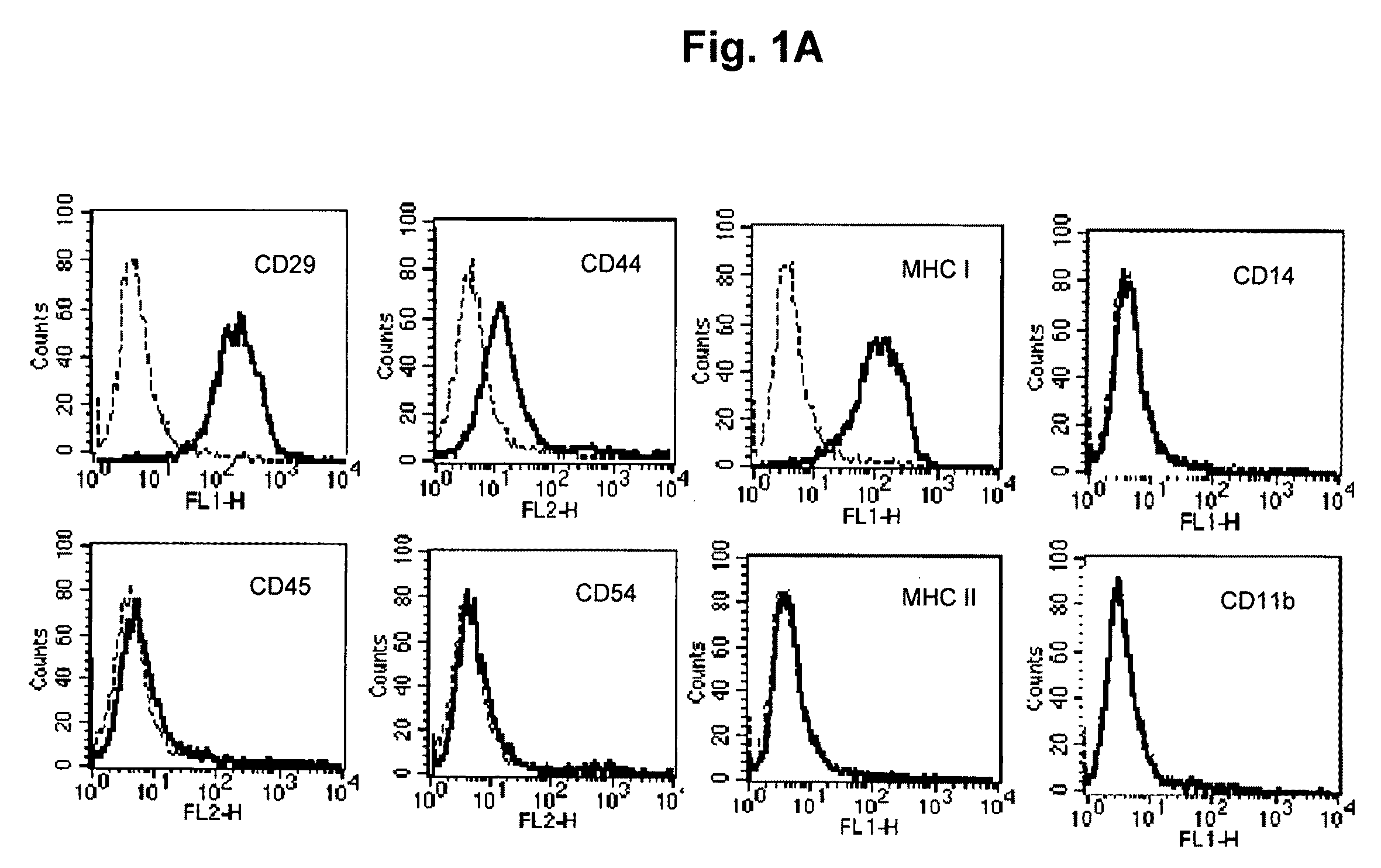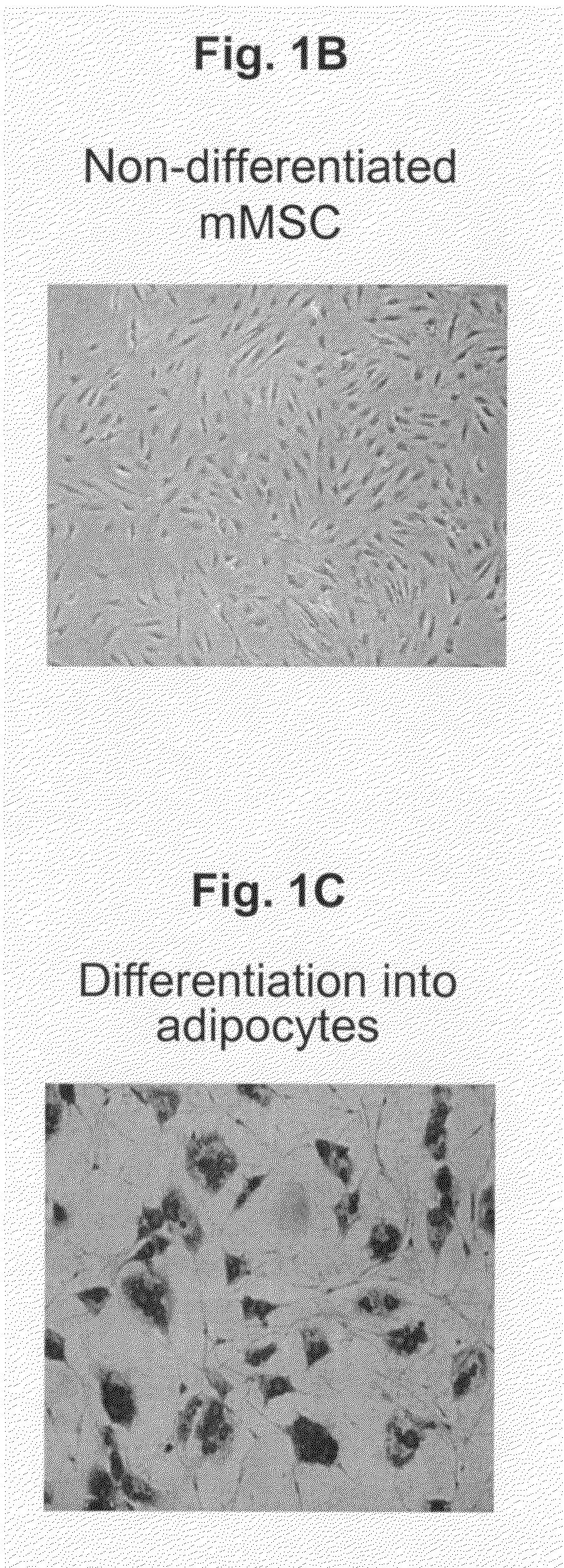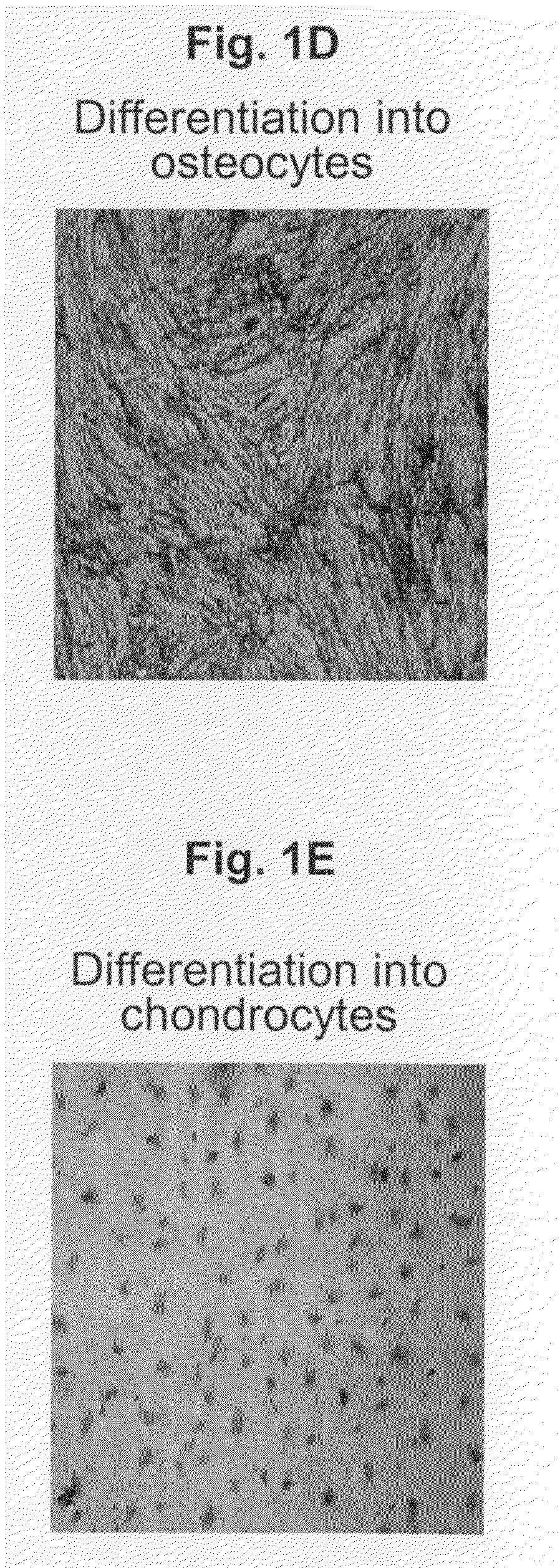Mesenchymal stem cell-mediated autologous dendritic cells with increased immunosuppression
a technology of autologous dendritic cells and stem cells, which is applied in the field of mesenchymal stem cell-mediated autologous dendritic cells, can solve the problems of affecting the immunoregulatory activity of mscs on t lymphocytes, the side effects of stem cells themselves in vivo remain unclear, and the culture of murine mscs is frequently contaminated. it can suppress the secretion of inflammatory cytokines, suppress th
- Summary
- Abstract
- Description
- Claims
- Application Information
AI Technical Summary
Benefits of technology
Problems solved by technology
Method used
Image
Examples
examples
Methods and Materials
[0113]Mouse (m) MSC Preparation
[0114]Bone marrow from 6-week-old female Balb / c mice (Orient Bio, Gyeonggi-do, Korea) was flushed out of tibias and femurs. After washing by centrifugation (1500 rpm, 3 min) in phosphate-buffered saline (PBS), cells were suspended in cell culture medium comprising LG (low glucose)-DMEM (Life Technologies, Gaithersburg, Md., USA), 15% fetal bovine serum (FBS, RH Biosciences, Lenexa, Kans., USA), 100 U / ml penicillin, 100 μg / ml streptomycin, 2 mM L-glutamine, and 1% antibiotics-antimycotics (Life Technologies, Gaithersburg, Md., USA) and plated in T75 flask. Suspended cells were removed after 5 to 7 days of culture, and adherent cells were continued to culture. Cultures were maintained at 37° C. in a humidified atmosphere containing 5% CO2 and culture medium was changed every 3 to 4 days. Cells were detached with 0.1% trypsin-EDTA when they reached 50-60% confluence, and replated at a density of 2×103 cells / cm2 in other culture flasks...
PUM
 Login to View More
Login to View More Abstract
Description
Claims
Application Information
 Login to View More
Login to View More - R&D
- Intellectual Property
- Life Sciences
- Materials
- Tech Scout
- Unparalleled Data Quality
- Higher Quality Content
- 60% Fewer Hallucinations
Browse by: Latest US Patents, China's latest patents, Technical Efficacy Thesaurus, Application Domain, Technology Topic, Popular Technical Reports.
© 2025 PatSnap. All rights reserved.Legal|Privacy policy|Modern Slavery Act Transparency Statement|Sitemap|About US| Contact US: help@patsnap.com



